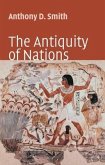Until recently, it was thought by many that empires were relics of the past. But suddenly, in the wake of 9/11, the global war on terror and the invasion of Iraq, the question of imperial power has returned to the centre of debate: we now seem to be faced with a new American empire that many people regard as threatening. Do the politicians in Washington dictate the rules that the rest of the world must follow? Or do empires have a logic of their own to which even the most powerful rulers must succumb? In this major new book, Herfried Munkler analyses the characteristics of empires and traces the rise and fall of imperial powers from Ancient Rome to the present day. What is an empire? What risks does an imperial order face and what opportunities are offered? Munkler shows how empires provide stability and examines the dangers they face when their powers are overstretched. He argues that, while earlier empires from Ancient China and Ancient Rome to the Spanish, Portuguese and British empires had their own historical conditions, certain basic principles concerning the development and preservation of power can be discerned in all empires and are still relevant today. This book is a commanding walk through the history of empires and at the same time a brilliant analysis of the most modern of topics. It will appeal to students and scholars of international politics and history as well as general readers interested in political history and contemporary world politics.
Hinweis: Dieser Artikel kann nur an eine deutsche Lieferadresse ausgeliefert werden.
Hinweis: Dieser Artikel kann nur an eine deutsche Lieferadresse ausgeliefert werden.
"What makes Munkler's effort intriguingly different is that hedoesn't just talk about America, but offers fascinating thoughts onthe European Union as, at least potentially, a kind of empiretoo."
The Independent
"[In] tough-minded style, the German strategist HerfriedMünkler has expounded the world-historical logic of empires inan ambitious comparative work."
Perry Anderson, London Review of Books
"Although Münkler's concerns are firmly grounded inthe present, it is the ambition and historical richness of hisargument that most firmly distinguishes it from other attempts tomake sense of empire. Defying the presentism that is socharacteristic of much commentary on the subject, Münklertakes the reader on a panoramic journey from the 'parallel empires'of Rome and Qin Dynasty China, through the seaborne and steppeempires of the late medieval and early modern periods, to theimperial American present ... A pleasure to read."
Australian Journal of Political Science"Seamlessly weaving together theory and empiricism,[Empires] is a historical analysis of the highestorder."
Political Studies Review
"Herfried Münkler is a walking one-man think-tank."
Die Zeit
"A fascinating examination of empire."
Tribune
"Münkler carefully traces the sweep of empires in history,distinguishes between that which is imperial and that which isimperialist, and renders a fascinating and balanced account of twocontemporary cases: the contradictory elements of America?simperial destiny and the inevitability, following the US precedent,of the EU?s taking on imperial forms, out of necessity, despite itsanti-imperialist character. In a twenty-first century where issuesof order and stability lie at the core of security questions, thistimely book, elegant in its conception and translation, may be avital guide."
James Gow, King?s College London
"Without question, this is the best single volume available onthe logic of empires, both ancient and modern. The empirical rangeis impressive, the debt to international relations theory helpful,and the whole is written with grace and clarity."
John A. Hall, McGill University
The Independent
"[In] tough-minded style, the German strategist HerfriedMünkler has expounded the world-historical logic of empires inan ambitious comparative work."
Perry Anderson, London Review of Books
"Although Münkler's concerns are firmly grounded inthe present, it is the ambition and historical richness of hisargument that most firmly distinguishes it from other attempts tomake sense of empire. Defying the presentism that is socharacteristic of much commentary on the subject, Münklertakes the reader on a panoramic journey from the 'parallel empires'of Rome and Qin Dynasty China, through the seaborne and steppeempires of the late medieval and early modern periods, to theimperial American present ... A pleasure to read."
Australian Journal of Political Science"Seamlessly weaving together theory and empiricism,[Empires] is a historical analysis of the highestorder."
Political Studies Review
"Herfried Münkler is a walking one-man think-tank."
Die Zeit
"A fascinating examination of empire."
Tribune
"Münkler carefully traces the sweep of empires in history,distinguishes between that which is imperial and that which isimperialist, and renders a fascinating and balanced account of twocontemporary cases: the contradictory elements of America?simperial destiny and the inevitability, following the US precedent,of the EU?s taking on imperial forms, out of necessity, despite itsanti-imperialist character. In a twenty-first century where issuesof order and stability lie at the core of security questions, thistimely book, elegant in its conception and translation, may be avital guide."
James Gow, King?s College London
"Without question, this is the best single volume available onthe logic of empires, both ancient and modern. The empirical rangeis impressive, the debt to international relations theory helpful,and the whole is written with grace and clarity."
John A. Hall, McGill University








